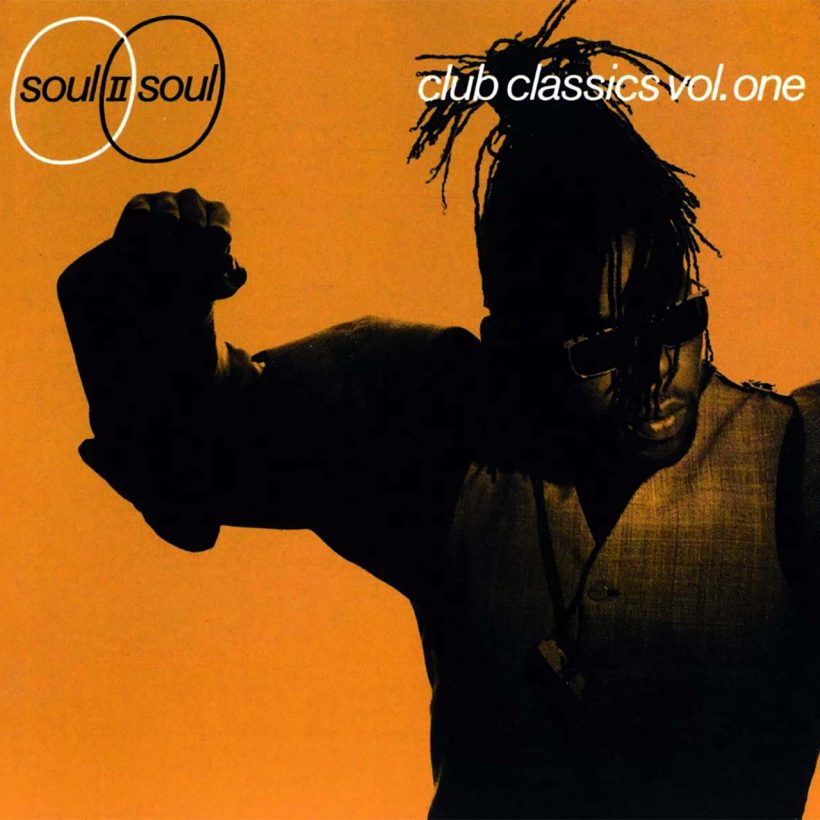‘Club Classics Vol. 1’: Soul II Soul’s Debut Album Changed The Game
The London collective’s landmark 1989 release brought them international acclaim. It still sounds classic.

The year 1989 was a momentous one for London’s Soul II Soul, who took the world by storm with their unique and distinctive mash-up of Caribbean-tinged soul, funk, reggae, hip-hop, house, and jazz flavors. A collective of singers, instrumentalists, rappers, and DJs led by the MC and producer Jazzie B (AKA “The Funki Dredd”), the group were hugely successful in their home country and even made a huge impact in America, where they topped Billboard’s R&B singles charts twice within the space of three months: first with the infectious “Keep On Movin’” and then with its equally appealing follow-up, the UK No. 1 “Back To Life (However Do You Want Me),” both showcasing the exquisitely soulful vocals of Caron Wheeler.
Those two chart-topping singles were plucked from the group’s debut album, Club Classics Vol. 1, a landmark release that altered the landscape of R&B at a time when the brash, hip-hop-influenced swingbeat sound had been America’s dominant sound. After Soul II Soul’s arrival, many R&B records aped the distinctive drum loop and string arrangements that had defined the group’s two biggest singles; and Jazzie B and his partner in crime, the band’s keyboardist Simon Law, were also in demand as producers and remixers, working on tracks for a variety of artists, ranging from US house music queen Kym Mazelle to R&B star Jody Watley, and even the reggae group Ziggy Marley & The Melody Makers.
Listen to Soul II Soul’s Club Classics Vol. 1 now.
Offering an assortment of different musical styles, Club Classics Vol. 1 reflected the musical eclecticism of British club culture and stayed true to the band’s motto: “A happy face, a thumpin’ bass, for a lovin’ race!” Its tracks ranged from minimalist electro-funk (“Fairplay,” featuring vocalist Rose Windross) to bubbling house music (“Holdin’ On”), sampladelic hip-hop (“Feelin’ Free”), and jazz-infused dance cuts (“African Dance”). Though it covered a lot of different musical bases – and sometimes sounded like it featured several different bands – the LP was given a sense of cohesion by Jazzie B’s groove-conscious production that gave each track an addictive dance pulse.
On its release in April 1989, Club Classics Vol. 1 (which was retitled Keep On Movin’ for the US market) rocketed to the summit of the UK albums chart during an incredible 60-week stay in the hit parade. It also topped the US R&B charts and rose to No. 14 in the Billboard 200. In 1990, two tracks from the album brought the group a couple of Grammy awards: “Back To Life” won Best R&B Performance By A Duo Or Group With Vocal, while “African Dance” grabbed the Best R&B Instrumental Performance. Quite an achievement for a debut album that more than lived up to its title.












